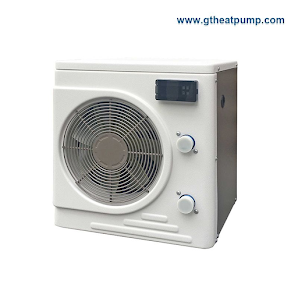Should I keep my pool heat pump on all the time?
Having a heated swimming pool is something you can enjoy all year round. However, do you keep your swimming pool heat pump running all the time in order to maintain a comfortable temperature. A swimming pool heat pump should not be running all the time. On the one hand, when your pool is already warm enough, you waste electricity by continuing to use it. Instead, it's best to set the heat pump's thermostat to turn when it's below the set temperature. Once the desired temperature is reached, the heat pump will shut down. However, if you set the thermostat temperature higher than the outside air, the heat pump will continue to run. If the thermostat is set higher than the outdoor air, it will keep running, wasting energy and money. This article will discuss how running your pool heat pump can heat your pool to provide more energy, saving you money.
Also, you can set the temperature to your liking. However, if you're going on vacation and don't use a heat pump, you can lower the temperature to save energy.
Another more energy-efficient strategy is to buy a pool cover or a solar powered pool cover. The lid will help retain heat so your heat pump doesn't have to be turned on as often.
If you turn off the heat pump completely, you might think you're saving money. However, it will actually cost you more to get the pool back to the desired temperature.
The reason is that the heat pump will have to work harder for the temperature loss. After trial and error, you will find the heat pump cycle that works for your pool.
Is a heat pump a good way to heat a swimming pool?
A heat pump is an energy-efficient way to heat a swimming pool. Their annual cost will be lower than gas heaters, saving homeowners money in the long run.
Using a heat pump is best for homeowners who live in warm climates during the winter months. The reason is that heat pumps require ambient air to reach 45° to fully work. In addition, heat pumps thrive in humid environments, making them ideal for homeowners who are exposed to humidity.
While heat pumps are less expensive to run, they have a higher initial cost. However, if you can pay the bills, you will recoup your initial investment in the first few years.
That being said, if you live in an area where the weather drops below freezing, then you should either use a gas heater or freeze your pool.
How does a pool heat pump work?
Pool heat pumps work by capturing heat from the surrounding air and transferring it to the water in the pool; therefore, heat your pool and keep it at a comfortable temperature.
The main component is an indoor blower that blows warm air into ducts located outside the home. As we mentioned before, the timer will turn on the heating assembly when the temperature drops below the desired level.
Since it uses electricity, you want to make sure your pool heat pump is sized for the size of your pool. For example, if you have a large swimming pool with a small pump, it won't be efficient enough to keep up with heating costs.
Should you run your pool heat pump at night?
It's best not to leave your pool heat pump running at night. If you do, then you will be throwing money down the drain.
Instead, let your heat pump start early in the morning [for early swimming] and let it cycle throughout the day. Then, cover the pool with a solar cover before going to bed or when the pool is not in use.
The solar hood will capture heat throughout the night, so the heat pump doesn't have to work as hard on the first cycle of the next day.



没有评论:
发表评论